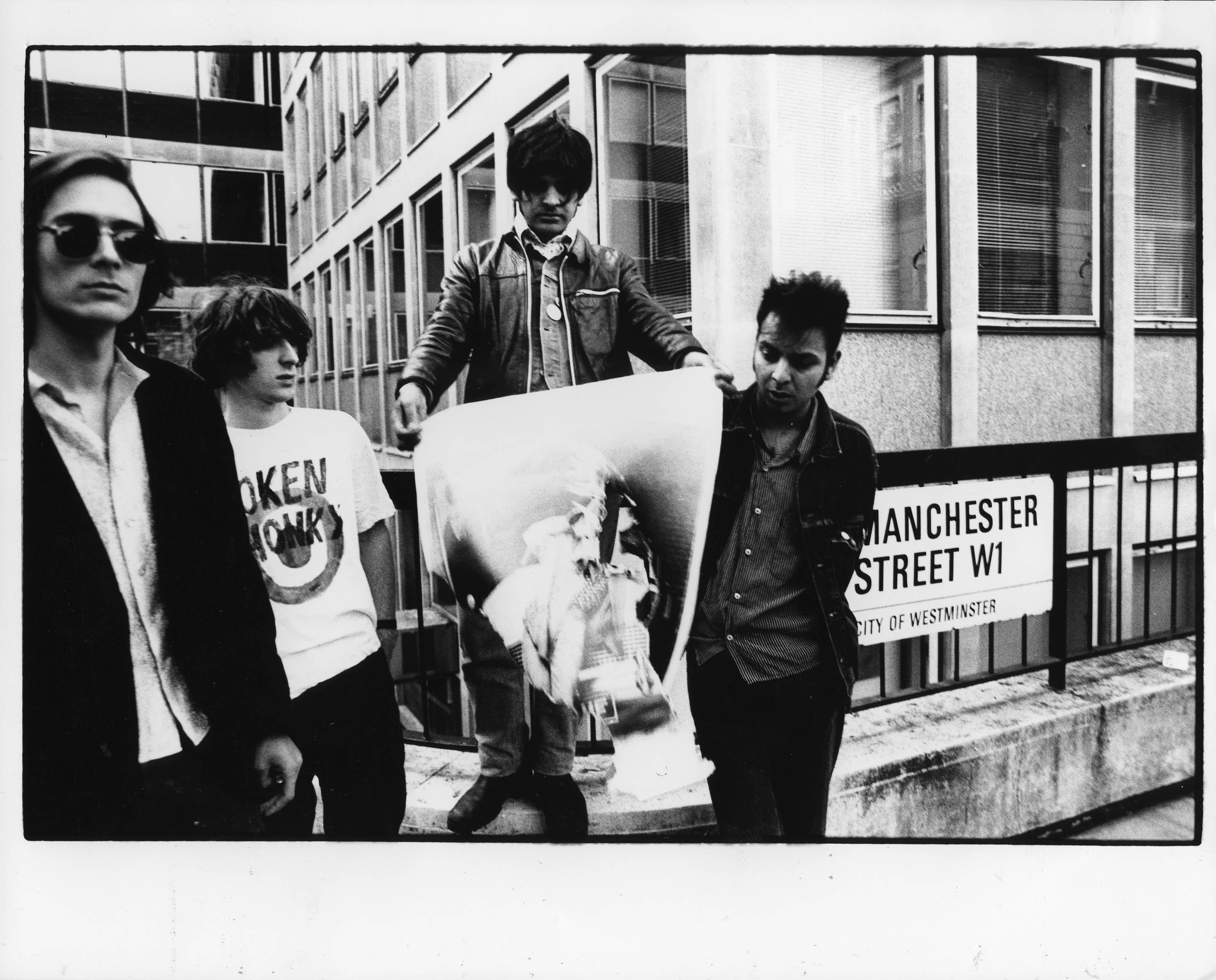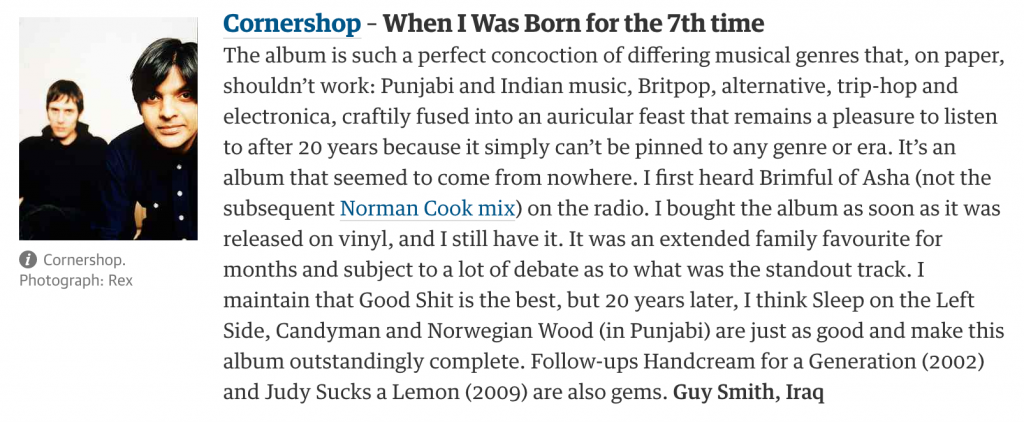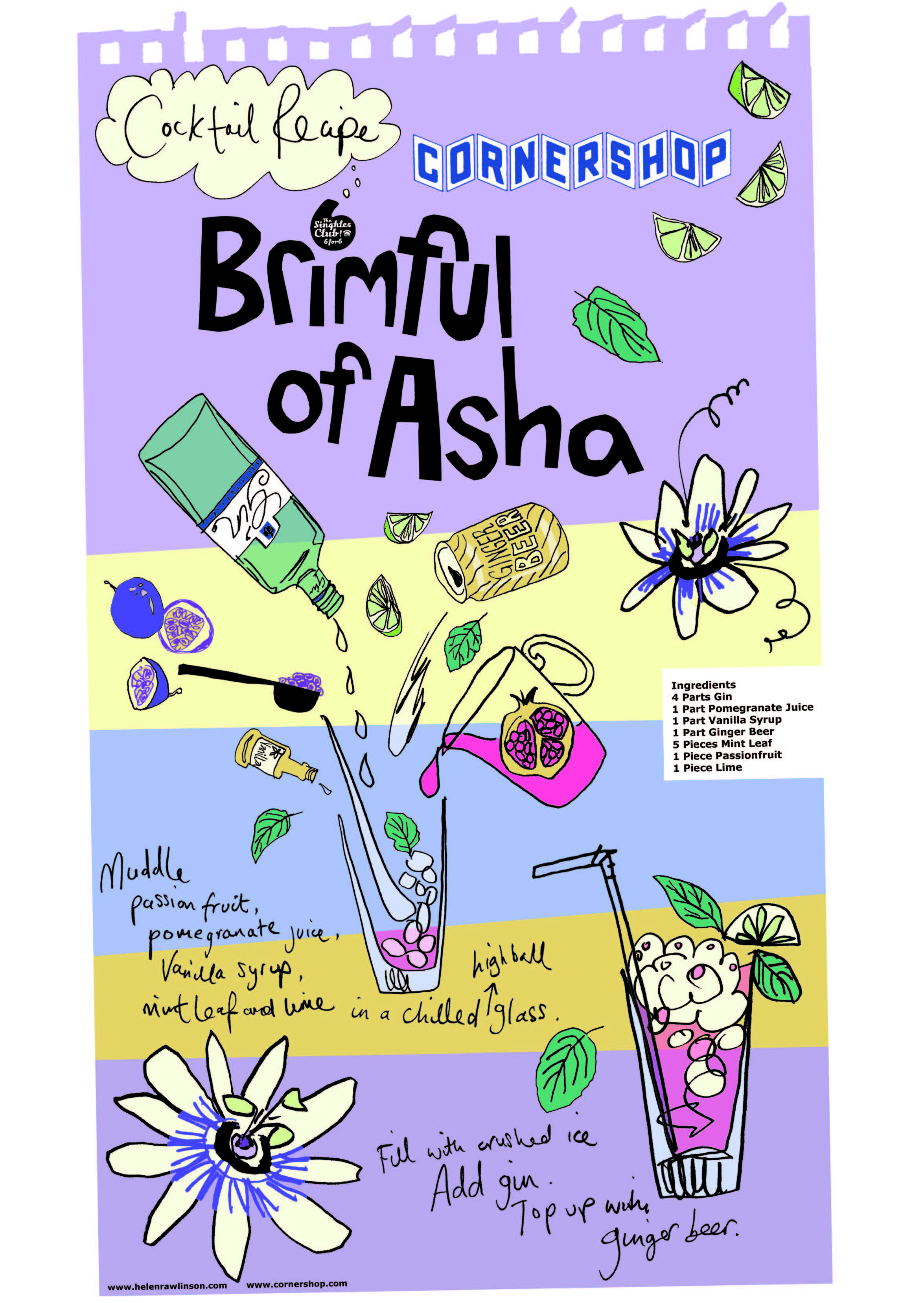Cornershop‘s career is defined by defiantly unconventional moves, in its sound and approach to music making. Foremost is a determination stated by Tjinder Singh, “The only thing that all our records have in common is that each one tries to sound utterly different.”

It’s a resolve Cornershop has delivered on since its launch in 1993. They began as a raucous guitar-based agit-pop-group – with a difference. Amidst the thrilling din was Punjabi-sung tracks accompanied by sitar and dholki. Captured first on the EPs In the Days of Ford Cortina and Lock Stock and Double Barrel, Cornershop issued their debut LP, Hold On It Hurts in 1994. Though still rough and direct, the album’s tracks displayed textures exhibiting a broader musical vocabulary and intent.
Amongst Hold On It Hurts‘s admirers was David Byrne, who signed Cornershop in the U.S. to his Luaka Bop label, proclaiming, “We could see that they were headed in a direction that no one else dared travel. And we liked it.” The new transatlantic partnership boosted 1995‘s Woman’s Gotta Have It, one of the most startling and venturesome sophomore albums released by a band. The Asian/western mixes and sonic experiments bloomed and took center stage, notably in the U.K. and U.S. club success 6 A.M. Jullandar Shere.
Cornershop‘s breakthrough 1997 record, When I Was Born for the 7th Time, initiated unprecedented international acclaim. The record is a landmark of sonic invention and adventure, a cornucopia of compelling pan-cultural grooves. The album boasts Cornershop‘s signature track Brimful of Asha, possessing the most unlikely – yet inclusive – refrain in pop music history: “Everyone needs a bosom for a pillow.” It also included notable collaborations with Allen Ginsberg, The Automator, and a cover of The Beatles ‘Norwegian Wood‘ sung in Punjabi.
When I Was Born for the 7th Time was included in Rolling Stone‘s “Essential Recordings of the 90’s,” and Spin ranked it #34 in their “90 Greatest Albums of the ’90s” – after making it #1 in their “Top 20 Albums Of The Year” (besting, amongst others, Radiohead’s OK Computer). Similar rankings came from Q, NME, Melody Maker, and The Village Voice, amongst others.
Cornershop‘s recorded response to the attention was true to form and its self. Rather than building the Cornershop brand, they adopted the “Clinton” avatar for 1999‘s Disco and the Halfway to Discontent. The gratifying success of When I Was Born seemed irrelevant to where Singh and Ayres (now the core of the group and remaining original members) wanted to go.
The destination was the dance floor. Disco is a laid back yet insistent collection of fizzy grooves containing the hallmark guest vocals, stylistic twists, and a toolbox of genres. It provided further proof (if needed) that Singh‘s sonic imagination seemed limitless. This was especially evident when Cornershop quadruple-downs in 2002 on its next album – and masterpiece to date – Handcream for a Generation.
On the surface, the record follows its predecessor’s path: some band-performances, scratch and sample collages, genre exercises, and cross cultural fusions traversing reggae, funk, and soul. Tracks are longer and more fully realized, starring a diverse guest cast including legendary soul singer Otis Clay, Noel Gallagher and Guigsy of Oasis, and London reggae figures Jack Wilson and Kojak. Handcream achieves its singular status for being the band’s most extensively ambitious and fulfilling of the band’s aesthetic.
After touring in support of Handcream, Tjinder Singh announces a leave of absence to work on a film about the independent music industry. However, in a “creative splurge,” Cornershop releases a double A side single, Topknot/Natch on Rough Trade in 2004, its initial collaboration with the Bubbley Kaur. Where Handcream was expansive and complex, these tracks are stunningly intimate and simple, seamlessly fusing Kaur‘s haunting Punjabi vocals with funk-inspired rhythms.
Cornershop‘s maternity leave ends with the 2009 release of Judy Sucks a Lemon for Breakfast on its own Ample Play label. After a trio of assertively far-reaching records, Judy’s relative simplicity is startling in its own right. Cornershop is here to rock – but in its own inimitable way. If traditional chorus-verse songs with great riffs and hooky melodies are the intent, Judy provides them on every track. After Brimful of Asha, there should be no doubt in Singh ability to pen abiding tunes. Judy proves he can deliver an album’s worth.
Judy is a coup of a flexible and seasoned live-capable band. In its most direct and appealing album, Cornershop stays true to defying expectations and making the move appear radical.
Close after Judy comes the culmination of further collaboration with Bubbley Kaur, the 2010 album Cornershop and the Double O Groove of. At the heart of the record is Tjinder Singh‘s desire to “mix western music with Punjabi folk in a way that wasn’t crude.” “Western music” encompasses a multiplicity of stances and Singh doesn’t skimp, offering ten stylistically dissimilar tracks, unified in accomplishment in framing Bubbley Kaur‘s mellifluous melodies.
The recent post–Double ‘O’ step was the May 2011 launch of Ample Play‘s The Singhles Club, a six-tracks-for a 6 pound subscription service. The project offers limited edition outtakes “reimagining the collectable single in a digital format with special added content; a digital popadom.” It’s a novel approach to distribution that like the music it offers, abounds in adventure and invention. With Cornershop, the only certainty is that something distinctly new is on the way.
Kenneth FitzGerald
Associate Professor of Art
Old Dominion University, Norfolk Virginia USA
Author, Volume: Writings on Graphic Design, Music, Art, and Culture (Princeton Architectural Press)




